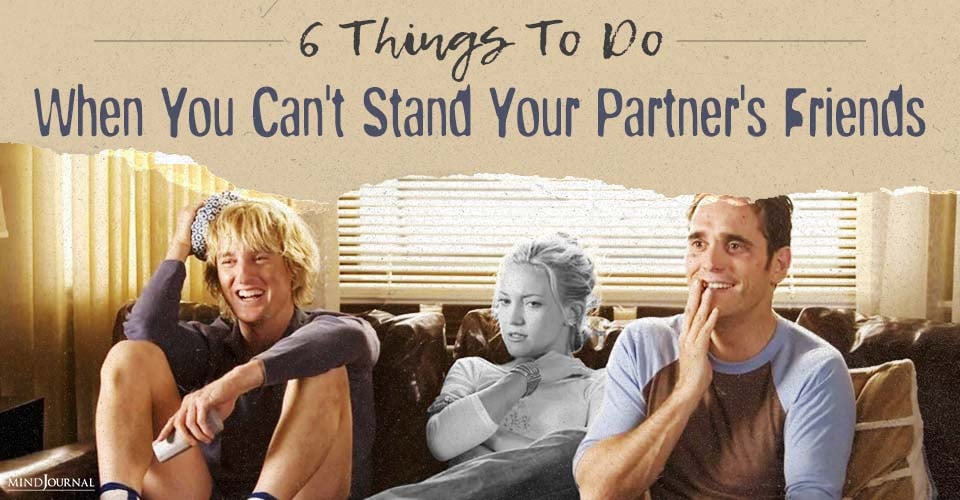Relationships are supposed to make you feel happy and fulfilled at least the healthy ones. And if you want to be in a healthy relationship, then you have to avoid settling in just any kind of relationship.
Make no mistake: Expectations for today’s relationships are higher than ever.[1] Thanks to technology, you have hundreds of options for partners a swipe or click away. With so many possibilities, relationships are a choice. That freedom is a lot of responsibility. It also complicates decision-making and makes evaluating your relationship more difficult.
No one wants to settle. Love life full of mediocrity isn’t an option. It’s relationship F.O.M.O. (fear of missing out). Careful though, if you’re too concerned about being single, you’re more likely to accept a relationship that falls short of your expectations.[2] You don’t want just any romantic partner, you want the right person for you.
The secret to avoiding settling seems simple: Have high standards and demand only the best.
Related: 9 Ways People Settle in Relationships
Only the Best
The perfect relationship. If you could build it, what would it look like? Perhaps more importantly, how does your current relationship stack up? Perfection is a lofty goal, but for something as important as your relationship, it can feel like the right goal.
Researchers refer to people who always want the absolute best possible option as maximizers.[3] Maximizer personalities are picky and will exhaust all options and explore all possibilities to secure a flawless partner. Only the best will do.
If you’re thinking long-term in your relationship, the maximizer method seems like common sense. However, there are hidden side effects.
Call it the myth of maximization, because the research reveals that maximizers report, on average, more regret, depression, and feeling threatened by others who are doing better than them.[4] Maximizers also seem to experience lower self-esteem, optimism, happiness, and life satisfaction.
Here’s another problem: Maximizers prefer reversible decisions or outcomes that are not absolute or final.[5] That’s not how we typically approach love. In our long-term relationships, we tend to prefer more of a “til death do us part” approach.
However, the maximizer mentality may encourage an “until I find something better” approach. Temporary contentment and happiness due to the possibility of something slightly better on the horizon.
What You’re Missing
Not only does this feel shallow, but it’s also shortsighted. The constant search for upgrades and maximization opens you up to an even bigger mistake: failing to recognize the truly great relationship that’s right in front of you.
There’s an old saying: “When you reach the end of your rope, tie a knot in it and hang on.” In other words, before you let go and lose something valuable, take matters into your own hands. Instead of wondering, “Is there something better out there?” the better question to ask yourself may be, “What am I taking for granted or failing to appreciate in my current relationship?”.
Rather than cast aside a great relationship because you’re worried about settling, find the “knots” that help you to hold on so you can avoid the mistake of letting it slip through your grasp.
Check out the new book of Gary W. Lewandowski Jr., Stronger Than You Think: The 10 Blind Spots That Undermine Your Relationship…and How to See Past Them, to know more about relationships, and how to handle them.
References:
This article provides a few insights to help better understand and appreciate your current relationship. For many more, see my new book, Stronger Than You Think: The 10 Blind Spots That Undermine Your Relationship...and How to See Past Them. [1] Finkel, E. J., Cheung, E. O., Emery, L. F., Carswell, K. L., & Larson, G. M. (2015). The suffocation model: Why marriage in America is becoming an all-or-nothing institution. Current Directions in Psychological Science, 24(3), 238–244. [2] Spielmann, S. S., MacDonald, G., Maxwell, J. A., Joel, S., Peragine, D., Muise, A., & Impett, E. A. (2013). Settling for less out of fear of being single. Journal of Personality and Social Psychology, 105(6), 1049–1073. [3] Parker, A. M., de Bruin, W. B., & Fischhoff, B. (2007). Maximizers versus satisficers: Decision-making styles, competence, and outcomes. Judgment and Decision Making, 2(6), 342–350. [4] Schwartz, B. Ward, A., Monterosso, J., Lyubomirsky, S., White, K., & Lehman, D. R. (2002). Maximizing versus satisficing: Happiness is a matter of choice. Journal of Personality and Social Psychology, 83, 1178– 1197. [5] Shiner, R. L. (2015). Maximizers, satisficers, and their satisfaction with and preferences for reversible versus irreversible decisions. Social Psychological and Personality Science, 6(8), 896–903.
Written By Gary W. Lewandowski Jr. Originally Appeared In Psychology Today









Leave a Reply